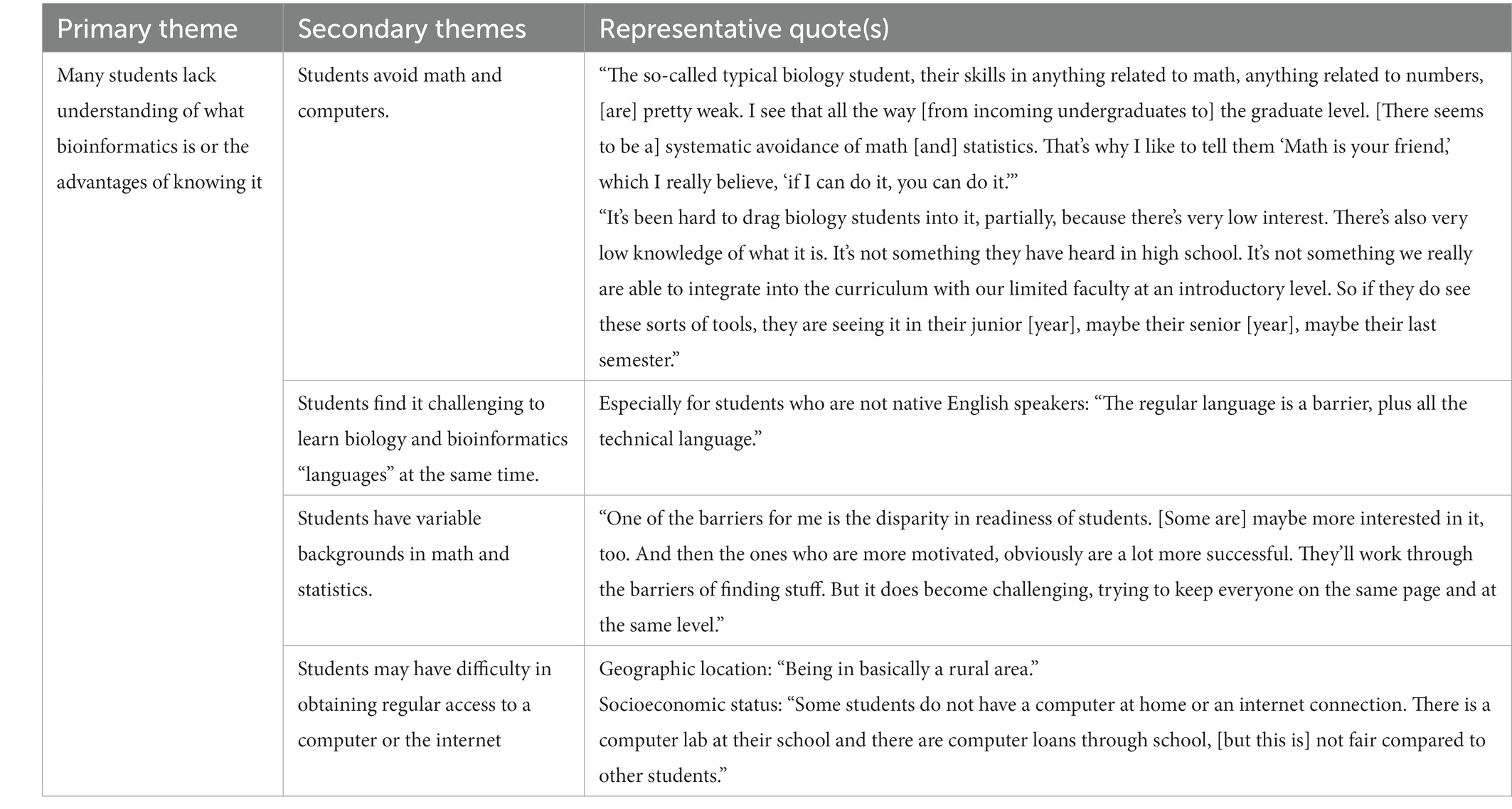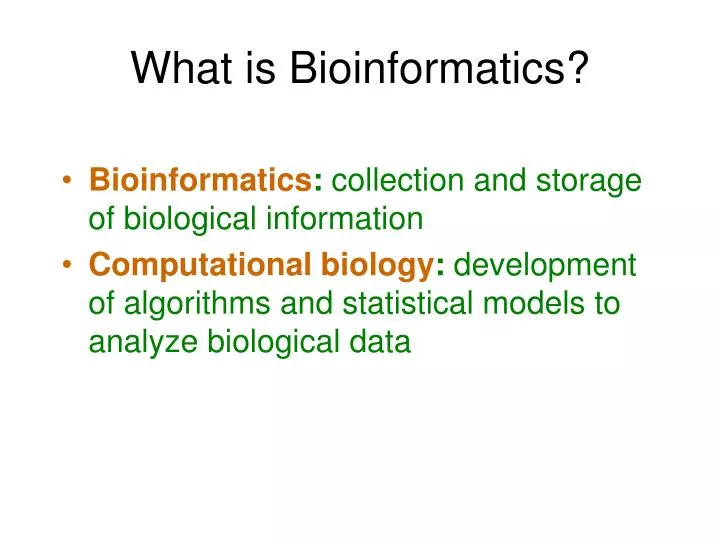The smart Trick of Bioinformatics Tutor That Nobody is Talking About
The smart Trick of Bioinformatics Tutor That Nobody is Talking About
Blog Article
Not known Incorrect Statements About Bioinformatics Tutor
Table of ContentsThe Best Strategy To Use For Bioinformatics TutorThe Bioinformatics Tutor StatementsGet This Report on Bioinformatics TutorFascination About Bioinformatics TutorBioinformatics Tutor for Dummies
Of the total amount participants involved in the training, 80% were trainees from public higher education institutions, while the continuing to be 20% came from exclusive organizations. To receive a certificate of engagement, students were called for to participate in a minimum of 90% of the overall training hours. As a result of this demand, an impressive 95% of the individuals efficiently obtained their certificates, having not just satisfied the minimum participation requirements yet likewise finished all designated tasks throughout the training.
During the elevation of the COVID-19 pandemic, especially between June and August 2020, the task group was entrusted with organizing specialized training in bioinformatics. This training was particularly aimed at students from the research study team Core for Study in Applied Computing at the Federal University of Pará (UFRA) The adjustment to remote understanding systems because of the pandemic developed a possibility to check out new teaching methods and electronic devices that enhanced both reach and performance.
This training course was designed to supply an easily accessible yet comprehensive overview of Artificial Knowledge techniques, specifically as applied in bioinformatics (Bioinformatics Tutor). This online format made it possible for engagement from pupils throughout Brazil, numerous of whom could not have had the opportunity to participate in in-person sessions.
6 Simple Techniques For Bioinformatics Tutor
Roughly 50% of the complete training hours were committed to useful activities where pupils developed smart models and applications in a variety of scientific domain names, including genetics, molecular biology, and environmental information evaluation. These platforms enabled trainees to involve in real-time data control, model training, and algorithm testing.
The course brought in 80 participants in overall. Sixty of them were associated with numerous college institutions in the state of Pará, while the staying twenty originated from organizations situated in five other Brazilian states. This broad geographical depiction highlighted the nationwide interest in bioinformatics and the growing need for specialized skills in this field. By introducing Artificial Intelligence in a sensible and appropriate context, the initiative offered to connect the space between theory and real-world application, supplying students with a solid foundation for future research study or work in the area.
The training initiative formed component of a broader academic outreach initiative referred to as the Bioinformatics on the Roadway task. This job has, throughout the years, presented lots of students to the globe of bioinformatics and computational biology. The occasions held under this umbrella campaign have actually occurred throughout numerous areas and years, as summarized in Table 1 (Listing of occasions, areas, years, and total numbers of pupils and trainers)
Several of these groups, initially brought with each other by their involvement in training events, have because gone on to produce independent clinical research study in partnership with regional scholastic organizations. The training not only promoted scientific thinking within the context of bioinformatics yet additionally sparked collective connections that prolonged past the training setting.
The Single Strategy To Use For Bioinformatics Tutor
The task itself was conceived and arranged by megabytes and RR, that looked after the preparation and implementation of each step. Lectures were delivered by a multidisciplinary group including megabytes, FA, EF, KP, JS, DM, SN, LP, LG, RR, air conditioning, and ih. The very same team, excluding IH and RR, also acted as tutors for the sensible training components. Funding for the project was provided with the grant 88887.200562/ 2018-00 from CAPES. The writers expand their gratefulness to everyone who added to the awareness of this task, whether straight or indirectly, since its inception.
The Federal University of Pará's Office of Research study (PROPESP/UFPA) additionally provided financial backing, especially for the manufacturing of the final manuscript. The writers state no financial or industrial problems of rate of interest that could have influenced the study. Moreover, all opinions and interpretations revealed in this short article are entirely those of the writers and do not always mirror those of their respective organizations, the author, editors, or reviewers involved in the magazine procedure.

Not known Details About Bioinformatics Tutor
From an instructional point of view, the training strategy used in the training was intentionally interactive. Classes were performed in a way that urged student participation and conversation, going beyond memorizing memorization to discover how concepts are created, applied in life, and evaluated in academic setups. The educational philosophy focused on supporting both solid and struggling pupils, providing customized support, and building confidence via sustained mentorship and persistence.

Each group, being composed of around 36 participants, Full Article was sustained by three mentors-- the majority of whom were postdoctoral researchers with customized proficiency. These advisors not only helped create the team tasks yet also facilitated their execution, making certain that each study question was both appropriate and appropriately challenging. The goal was to give a naturally sensible context that individuals could check out via open-ended purposes and access to curated datasets.
For added understandings right into the method and end results of this project-based knowing method, viewers are guided to S1 Text, which consists of in-depth summaries of the pedagogical structure, assessment approaches, and project motifs utilized in the training sessions.
The Ultimate Guide To Bioinformatics Tutor
Of the overall participants involved in the training, 80% were students from public greater education establishments, while the staying 20% came from private institutions. To certify for a certification of engagement, trainees were required to go to at least 90% of the complete training hours. Especially, beyond the students who signed up in the training sessions, 7 skilled instructors participated in delivering the programs, while three committed research study professors collaborated the overall training process. Approximately 50% of the complete training hours were devoted to functional activities where trainees Continued constructed smart models and applications in a range of scientific domain names, consisting of genes, molecular biology, and ecological data evaluation. The training not only promoted scientific thinking within the context of bioinformatics however additionally triggered collective partnerships that expanded beyond the training atmosphere.
Report this page